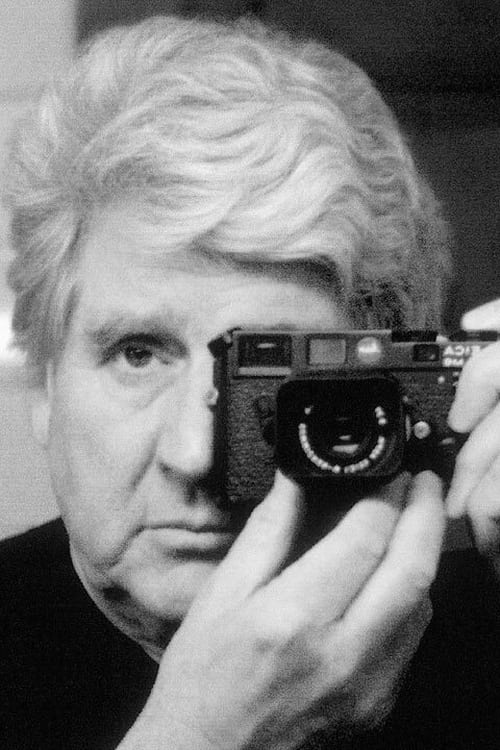Francis Reusser
Nacimiento : 1942-12-01, Vevey, Switzerland
Muerte : 2020-04-10
Historia
Francis Reusser was a Swiss film director. He directed thirteen films since 1968. His film Derborence was entered into the 1985 Cannes Film Festival. Reusser died on 10 April 2020 after a long illness.
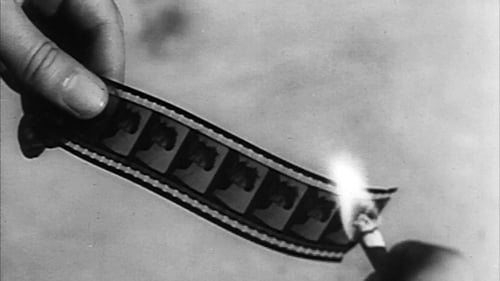
Director of Photography
Essay on the epic story of an ordinary man, a filmmaker, born in the beginning of the Second World War. From 1942 to 2016, his personal story and the world history, the history of his films, of cinema and the images that inspired him. Life and creation entangled, untangled, intertwined, jostled together. From his childhood to his first steps as an artist. From the distant war to the war against everyone, from the dreamed revolution to the consumer society that ruins your dreams like Coca Cola dissolves your bones.

Writer
Essay on the epic story of an ordinary man, a filmmaker, born in the beginning of the Second World War. From 1942 to 2016, his personal story and the world history, the history of his films, of cinema and the images that inspired him. Life and creation entangled, untangled, intertwined, jostled together. From his childhood to his first steps as an artist. From the distant war to the war against everyone, from the dreamed revolution to the consumer society that ruins your dreams like Coca Cola dissolves your bones.

Director
Essay on the epic story of an ordinary man, a filmmaker, born in the beginning of the Second World War. From 1942 to 2016, his personal story and the world history, the history of his films, of cinema and the images that inspired him. Life and creation entangled, untangled, intertwined, jostled together. From his childhood to his first steps as an artist. From the distant war to the war against everyone, from the dreamed revolution to the consumer society that ruins your dreams like Coca Cola dissolves your bones.

Himself
Essay on the epic story of an ordinary man, a filmmaker, born in the beginning of the Second World War. From 1942 to 2016, his personal story and the world history, the history of his films, of cinema and the images that inspired him. Life and creation entangled, untangled, intertwined, jostled together. From his childhood to his first steps as an artist. From the distant war to the war against everyone, from the dreamed revolution to the consumer society that ruins your dreams like Coca Cola dissolves your bones.

Director of Photography
Philippe Savoy head of the choir at Saint Michael's College in Fribourg is preparing to take his fifty-five students to Palestine for a series of concerts. From Bethlehem to Ramallah, passing by Jerusalem and Hebron, between check points and churches, discovering both refugee camps and historical tourism around the Dead Sea, the young musicians will discover an exploded territory, a country living in provisional peace with, in the background, the permanent humiliation of the Palestinian people.

Screenplay
Philippe Savoy head of the choir at Saint Michael's College in Fribourg is preparing to take his fifty-five students to Palestine for a series of concerts. From Bethlehem to Ramallah, passing by Jerusalem and Hebron, between check points and churches, discovering both refugee camps and historical tourism around the Dead Sea, the young musicians will discover an exploded territory, a country living in provisional peace with, in the background, the permanent humiliation of the Palestinian people.

Director
Philippe Savoy head of the choir at Saint Michael's College in Fribourg is preparing to take his fifty-five students to Palestine for a series of concerts. From Bethlehem to Ramallah, passing by Jerusalem and Hebron, between check points and churches, discovering both refugee camps and historical tourism around the Dead Sea, the young musicians will discover an exploded territory, a country living in provisional peace with, in the background, the permanent humiliation of the Palestinian people.
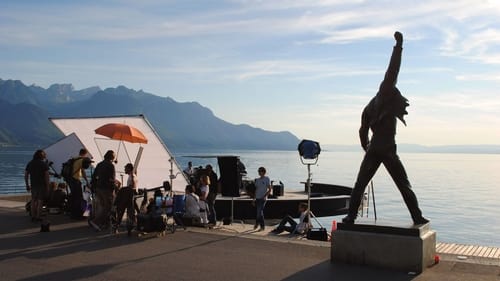
Scenario Writer

Director

Editor

Director

Director
La Guerre Dans le Haut Pays is a period piece set in the winter of 1797-98, during the six days leading up to the fall of Bern and the victory of Napoleon's army, when the Bern government is faced with mixed loyalties from its subjects. The population of the lower valley is divided, but the upper region remains loyal, since they have been given special autonomy and a favorable system of taxation. David, a postman, works between the two regions. His father, who is a hard-line conservative, does not approve of his relationship with Julie, who is from the lower part of the valley. Julie's father, on the other hand, is more open to the new ideas of liberation. As a result of his work, David is exposed to new ideas and becomes a believer in equality and justice.

Director
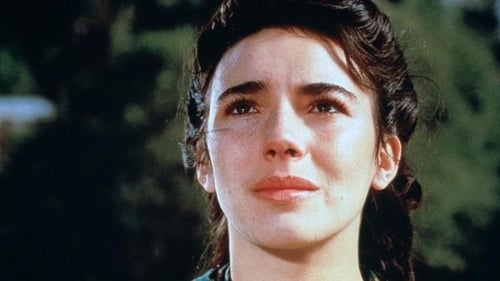
Editor
Antoine leaves his new bride behind to go on a skiing excursion with his uncle up the mountain behind their village of Derborence. Nine weeks after an avalanche apparently buries them alive, Antoine returns home. Certain that his uncle has also survived, he resolves to go back up and look for him—leaving his now-pregnant wife behind once more.

Director
Antoine leaves his new bride behind to go on a skiing excursion with his uncle up the mountain behind their village of Derborence. Nine weeks after an avalanche apparently buries them alive, Antoine returns home. Certain that his uncle has also survived, he resolves to go back up and look for him—leaving his now-pregnant wife behind once more.

Director of Photography
"One Woman, five men, five breakups." - BAM

Director
Jean (Niels Arestrup), the lead character in this psychological journey is torn by a search for his lost childhood, the overwhelming need to love a woman of his dreams (someone he has invented), and a struggle with his latent bisexuality. Jean finds some photos inside an automatic photo station that look like his mother who died soon after he was born. He starts to fantasize about the woman, giving her a name and identity and waiting for her to appear. During this time, he meets Carole (Christine Boisson) and has an affair with her, all the while pretending he has this other relationship with the woman in the photo. Significantly, the couple who introduce him to Carole is childless, and they eventually split up - perhaps a comment on the importance of childhood to the adult world. In the end, Carole discovers that Jean's "other woman" has no real existence, causing a crisis that finds a symbolic expression as the last scenes close on the story.

Writer
In Lausanne, Léon is involved by accident with a small Leninist group and gets to know Léa, a dedicated activist and the group leader's mistress. The police keep a close watch on them and trouble is bound to follow.

Director
In Lausanne, Léon is involved by accident with a small Leninist group and gets to know Léa, a dedicated activist and the group leader's mistress. The police keep a close watch on them and trouble is bound to follow.
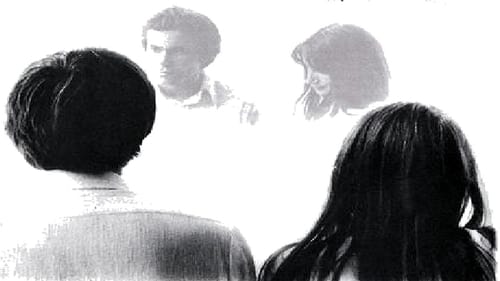
An ode to liberated speech and to the power of words, "those one speaks to others, those one speaks in silence", Alain Tanner's third film is inspired by a poet and a poetic text which deeply affected him as a young director.

Director of Photography
Jordan 1970: Like a political tract, the film exalts the Palestinian revolution through the role of the combattants, women, workers and children. Revolutionary songs and poems punctuate the people's struggle for liberation. This film defends a cause that was very little supported at that time. 'Biladi, une révolution' is one of the very first (if not the first) films on the issue.

Director
Jordan 1970: Like a political tract, the film exalts the Palestinian revolution through the role of the combattants, women, workers and children. Revolutionary songs and poems punctuate the people's struggle for liberation. This film defends a cause that was very little supported at that time. 'Biladi, une révolution' is one of the very first (if not the first) films on the issue.

Le Second Infirmier
Un acaudalado fabricante de relojes suizos decide abandonarlo todo el día del centenario de la firma uniendose a una pareja de marginados.

Director
In this highly symbolic romp, a young rebel and his girlfriend are on the outs with their conventional parents and are trying to be part of the political movements sweeping Europe, decrying consumerism and boring old things like civic chorales, etc. They run away to the mountains, get bored and hungry, in addition to being harassed by the local authorities, and return to their parents. There, the young man commits an act of murder and symbolically showers his girlfriend in expensive doo-dads.

Director
A bold cinematic project which tells the story of four Swiss women, aged 16, 22, 31 and 72: Sylvie, Patricia, Erika and Angèle, by blending fiction and documentary into four individual shorts assembled into a full-length feature film.
